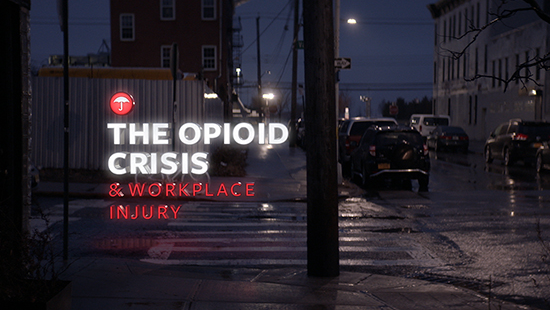Opioid Crisis Puts Cities and Towns at Risk of Litigation


Substance abuse is a serious and growing problem in the U.S., with an average of 130 Americans dying each day from an opioid overdose.1 For public entity leaders, a new financial risk is surfacing in the opioid crisis. Many cities, counties and towns may be unaware of the potential impact of litigation related to denying applications to build rehabilitation facilities within their boundaries.
Drug rehab and sober living facilities can help people who suffer from addiction to alcohol, opioid and other drugs, but these facilities often also face resistance from communities. Zoning officials and other public entity leaders may not be aware of the federal laws that prohibit discrimination against people with addictions. Litigation against cities and towns for unfairly denying such applications has resulted in million-dollar settlements.
How can public entities protect themselves against this evolving risk? It begins with understanding the laws that protect people with substance use disorders, then taking proactive steps to comply with these laws and to avoid actions that could be perceived as discriminatory.
Understanding federal antidiscrimination laws
People with substance use disorders are considered as having a disability when they have a past or present alcohol problem and/or past drug use that substantially limits one or more major life activities. Qualified persons are protected from discrimination by three federal civil rights laws:
- The Fair Housing Act (FHA) protects people from being discriminated against when renting, buying or securing housing. The FHA also prohibits discrimination in zoning and land-use decisions and policies, and requires municipalities to make reasonable accommodations to allow the disabled to enjoy the equal opportunity of fair housing.
- The Americans with Disabilities Act (ADA) prohibits discrimination against people with disabilities in all areas of public life, including government agencies and public and private places that provide accommodations, goods or services to the public.
- The Rehabilitation Act of 1973 prohibits any federally funded program or activity from discriminating against, denying benefits to or excluding persons with disabilities.
Under these laws, as well as companion state laws, private entities seeking to open a rehabilitation facility can sue local governments that, without sufficient cause, reject their application for a permit. Recoverable damages ‒ for such things as the upfront costs of developing the facility, lost profits, and attorney and expert fees ‒ can add up to a significant sum of money for which the municipality is held liable.
Key factors in the decision-making process
The protections of federal and state laws apply to individuals with substance abuse disorders, so long as the individuals are not currently using illegal drugs. For example, treatment centers typically must be allowed to operate in zones already designated for similar or related facilities, such as nursing homes, hospitals and out-patient clinics.
Even if a treatment center is not a “permitted use” under current zoning, the public entity may need to grant a variance in order to meet reasonable accommodation requirements under the FHA and ADA. A reasonable accommodation is a change, exception or adjustment that may be necessary for people with disabilities to have an equal opportunity to use and enjoy a treatment center as well as public and common-use spaces.
When determining if a variance should be granted, the public entity should identify and balance the following factors:
- The public interest. The public entity must consider both the benefits and the downsides of a treatment facility from the public’s point of view. Even if the facility is deemed to have a significant negative impact, it may be offset by positive effects. For example, a region with a high rate of opioid abuse may be well-served by having a treatment facility nearby.
- Detrimental effects. Any detrimental effects of granting a variance, such as noise, aesthetics or the need for a new parking lot or wider road.
- Reasonable conditions. Reasonable conditions may be able to reduce the detrimental effects. For instance, noise or an unsightly appearance could be easily remedied with fencing or trees, or by changing the site placement on the parcel. On the other hand, new parking or roadway requirements could impose an undue financial or administrative burden and may therefore be valid grounds for denying the application.
Each reasonable accommodation request is unique and must be evaluated on a case-by-case basis. A jury may perceive failure to provide reasonable accommodation as discrimination.
Guidelines to help reduce the likelihood of litigation
These guidelines can help public officials and city risk managers reduce the risk of litigation and ensure that the public entity extends equal opportunity housing to people with disabilities:
- Offer training on federal and state civil rights laws for newly elected officials and refresher courses to others. Make sure everyone understands why the laws are in place and how to uphold them.
- Be aware that statements made about individuals struggling with addiction could be interpreted as discriminatory.
- Examine zoning ordinances in advance of an application in order to best locate a potential treatment facility in an appropriate zone.
- Get legal advice on whether the proposed use fits with the zone and if reasonable accommodation is necessary. Ensure that zoning and planning officers are not denying applications without consulting counsel.
Even the most conscientious of public entities may be subject to a discrimination lawsuit. Learn more about how Travelers helps protect public entities from these and other risks.
Source



